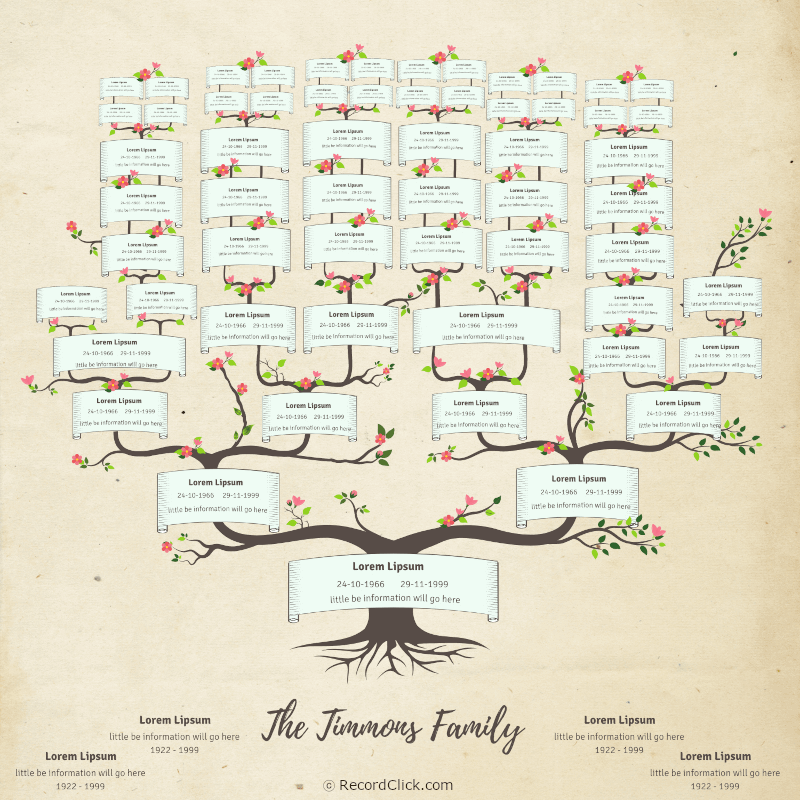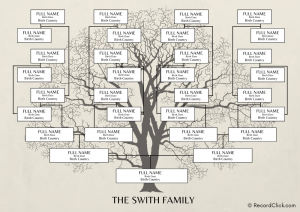Italian Heritage
Citizenship by Descent Are You Qualified
How to get Italian Citizenship by Descent & Your Italian Heritage
We’re a professional genealogy research company who can help you complete your genealogy.
Italian Genealogist, Italian Genealogy, Italian Ancestry

available
Massimo
(Modena, Italy)

available
Elia
(Crotone, Italy)

available
Caterina
(Sassari, Italy)
+ 2 More Researchers
Piacenza / Italy
Ragusa / Italy
Italy joins other EU nations that consider descent and ancestry as one way to acquire citizenship. The Jus Sanguinis (Latin for ‘right for blood’) program allows foreigners to apply for Italian citizenship if they connect with the country’s ancestors. Once granted citizenship through descent, you enjoy all the privileges a citizen enjoys, including an EU passport and election participation.
Regardless, if you’re researching your Italian roots or determining if you qualify for Italian citizenship by descent, the challenges you’ll face can be difficult. Hope this guide can offer you some assistance.
- Citizenship by descent and ancestry is citizenship granted to descendants of a dead or emigrated citizen.
- Correctly tracking your lineage to an Italian ancestor is the most important step in checking eligibility for Italian citizenship by descent.
- Record Click Professional Genealogists will perfectly navigate the national library, quickly track your story, and expedite the Italian citizenship application process.
Table of Contents
- 1 How to get Italian Citizenship by Descent & Your Italian Heritage
- 2 How Do I Qualify for Italian Citizenship by Descent?
- 3 What Makes Me Eligible for Italian Citizenship by Descent?
- 4 What Is The 1948 Italian Citizenship Rule?
- 5 How To Research Your Italian Genealogy?
- 6 Dive Into Italian Heritage
- 7 How Italian Americans Can Acquire Italian Citizenship
- 8 The Application Process
- 9 How Much Does Genealogists in Italy Cost?
- 10 Accredited Genealogists in Italy
- 11 Free Italian Genealogy Assessment
- 12 Why Hire an Italian Genealogist at Record Click
- 13 Hire a Professional Italian Researcher
How Do I Qualify for Italian Citizenship by Descent?
Tracing your lineage to an Italian ancestor could be a game changer in the citizenship application process if you are of Italian descent residing somewhere else.
However, genealogy is not the sole determinant; you’ll have to prove that your citizenship application process also adheres to Italian laws.
Before August 15, 1992, Italian citizens had to renounce their citizenship if they attained citizenship for another country.
So, if an Italian national visited the US and bore a child, the child would acquire US citizenship through ‘Jus soli’ synonymous with citizenship by birth. This would deprive them of the right to obtain Italian citizenship owing to the imposed laws before 1992 and also affect the subsequent generations.
However, the table has now turned for those affected by the set rules. Most countries, including the US, allow citizens to hold dual citizenship, so seeking Italian citizenship by descent won’t affect your status quo. The case might be a little different for, say, Chinese or Kuwait nationals of Italian descent.
What Makes Me Eligible for Italian Citizenship by Descent?
You can acquire Italian citizenship by descent through the paternity line for families of all generations. However, if you’re using the maternal line, the child of that ancestor must have been born after January 1, 1948.
What Is The 1948 Italian Citizenship Rule?
The 1948 rule, also dubbed the female line rule, allows you to acquire Italian citizenship through the courts if you were born before 1948 by an Italian mother. The law was created because the Italian constitution was adopted on January 1, 1948.
So, the municipalities and consulates can only consider the period after that as the legal basis through which you can seek citizenship by birth from an Italian mother.
However, the opinion has shifted as Italian courts extend the equality principle in cases where claimants were born to Italian mothers before 1948. This is only the case for some applications. The Civil Court of Rome remains with the final verdict for each case featuring children born before 1948 by Italian mothers.
Since the municipalities and consulates must strictly adhere to the established law of the land, they’re duty-bound to reject any application before the set date.
So, if your genealogy points to an Italian ancestor born by an Italian mother, grandmother, great-grandmother, etc., before 1948, don’t waste your time submitting to consulates. Instead, it would be best to consider the Civil Court of Rome.
How To Research Your Italian Genealogy?
Building Your Family Tree
Starting with yourself as the root, create a family tree to outline your Italian ancestry. Fill in each person’s full name, important dates like birth and death, and other key details.
This isn’t just homework; it’s a way to make history a fun part of your family’s daily life. You can easily find a free family tree template online to help organize your findings.
You can download a free family tree template to get started.
Keep in mind, genealogy is a popular hobby for many people, as it can be both interesting and informative. If you’re just getting started, one of the best ways to organize your research is to create a tree. There are several ways to do this, but one of the simplest is to use a printable tree template.
You can find them here: https://recordclick.com/templates/
Finding Information
If you’re at square one with no clues about your ancestors, start with online searches. For more detailed records, the National Archives and General Registrar’s Office are treasure troves of information, from birth records to census data.
Remember, while gathering all this paperwork might seem straightforward, it can quickly become overwhelming due to the sheer volume and red tape involved.
When to Call in the Experts
This is where a professional genealogist comes into play. They’re wizards in tracing family lines and can easily navigate the maze of historical records.
A genealogist from Record Click can speed up the search and shed light on the historical contexts of your Italian roots, ensuring accuracy, especially if you’re considering applying for Italian citizenship by descent.
Dive Into Italian Heritage
Exploring Italian American Culture
The Italian American community, with its deep roots in places like Southern Italy and vibrant hubs like San Francisco, is part of the largest ethnic group in America.
Italians have made significant contributions to American culture, enriching it with their music, food, fashion, and art traditions—from the Renaissance to modern times.
Celebrating Italian Traditions
Italian Americans celebrate their heritage in many ways, from Columbus Day parades in October to enjoying spaghetti at a family gathering. These celebrations are a testament to and celebrate the Italian spirit of hard work, family, and, most importantly, joy in life.
Events celebrating Italian American heritage happen frequently, offering a chance to embrace and discover the rich tapestry of Italian culture, from the bustling streets of Sicily to the modern landscapes of Italy today.
Italian Immigrants’ Contributions Worldwide
Many Italians have left their mark not just in America but across the world, with large numbers residing in Australia and other parts of Europe. The mass migration of Italians has brought about a fusion and celebration of Italian culture globally, influencing movies, fashion, and more.
This widespread influence shows the importance of understanding one’s roots and the impact of Italian immigrants and their descendants across centuries.
Start Your Search for Italian Descent
Begin your journey by celebrating your Italian roots and discovering your ancestors’ stories. Whether it’s through creating a family tree or engaging with the Italian American community at upcoming events, each step brings you closer to understanding the rich legacy of your Italian heritage.
And when the search gets tough, remember that professional genealogists are there to help illuminate your path back to Italy.
How Italian Americans Can Acquire Italian Citizenship
If you’re a citizen of another country seeking Italian citizenship by descent, you must meet the following criteria and living conditions.
- Your father was still a legal Italian national when you were born.
- Your mother was a legal Italian national when you were born, and you were born after January 1, 1948.
- Your paternal grandfather had legal Italian citizenship when your father was born out of Italy.
- Your maternal grandfather had legal Italian citizenship when your mother was born out of Italy, and you were born after January 1, 1948.
- Your maternal or paternal great-grandfather had legal Italian citizenship when your paternal or maternal grandparents were born out of Italy.
- The Italian ancestor lived during Italy’s unification on March 17, 1861.
- Your Italian ancestor had his Italian citizenship by June 14, 1912.
- Your ancestor naturalized in another country after giving birth to the next connector in the family tree. So, suppose your grandfather migrated and naturalized after your father’s birth. In that case, you qualify for Italian citizenship by descent, provided the naturalization also occurred after June 14, 1912.
- Relevant records like census reports indicating non-US status or alien files prove that the ancestor never naturalized.
- Your ancestor lived in Trentino Alto-Adige, Friuli-Venezia-Giulia, and Veneto and left Italy after July 16, 1920.
The Application Process
As mentioned earlier, proving the link between you and your Italian ancestor is the most important part of the application process. The three main channels for applying for Italian citizenship by descent are the Italian consulate, municipality, and Italian court.
You must present supporting documents to keep the record straight and prove you are clean. Some of the documents you may need include;
- A recorded pedigree chart of your family
- Birth certificate
- Marriage certificate
- Ancestor’s Italian passport, birth certificate, marriage certificate, and ID
- Power of Attorney.
If the application involves several members, you can submit all relevant documents as a set, provided they all connect to a common ancestor.
However, it’s advisable to contact a professional genealogist, Jus Sanguinis attorney, or the state’s Italian consulate general office for directions on the application process, especially regarding descent, ancestry, and fees.
How Much Does Genealogists in Italy Cost?
Hiring a professional genealogist can be a costly investment, but it is one that can pay off in a big way. When researching your family history, it is important to have access to accurate and up-to-date information. A genealogist based in Italy can provide you with this type of information and help you find records that are not readily available.
The cost of hiring an Italian genealogist will vary depending on the amount of time and research involved. However, it is important to remember that this is an investment in your family history or your dual citizenship application. By hiring a professional, you can ensure that your research is accurate and complete.
A researcher in Italy will typically cost around 130 euros per hour plus expenses.
Here is a great article on hiring a genealogist in general.
Currencies and Complications
When hiring an international researcher consider the following potential issues:
- If you’re paying in EURO’s, how are you going to send the invoiced amount in that currency?
- If you plan on wiring the funds, who’s going to pay for the additional fees? The researcher never wants to pay the transfer fees.
- If your researcher doesn’t answer an email after a week, how are you going to contact him/her?
- Life happens, but who’s going to keep your researcher accountable?
- Researchers always want 50% of the total up front, are you willing to take that risk?
- What if the work doesn’t meet your needs, who’s accountable for the failure?
- What privacy protection is in place to assure your information is protected?
- Will your researcher be able to visit different areas all around Italy?
- What will be the travel cost implications if your researcher needs to travel all around Italy?
There are many issues to consider, as such, we already recommend working with a company who offers Italian heritage research services verses a researcher directly. Many of the same researchers you’ll find working independently also work for companies on a per subscription based.
Accredited Genealogists in Italy
On the AGI website, you’ll find a number of accredited family research specialists; however, they face the same issues we described above. Higher rates, multiple currencies, and accountability issues.
Free Italian Genealogy Assessment
Why Hire an Italian Genealogist at Record Click
You will be impressed when it comes to tracing your heritage and Italian family history research. During the entire research process, you work side-by-side with our genealogists, witnessing the mysteries that they uncover.
If you are looking for Italian genealogists for hire, then you’ve landed on the correct website and found us. We are a group of 45+ professional genealogists with well over 15+ years of experience in the area of Italian genealogy research. Including family history, church records retrieval, census records, and identification of Italian ancestors or any other Italian record retrieval or ancestry.
If you’ve hit a roadblock in your research for ancestors, our genealogists are available to hire for your genealogy research needs. Our ancestry genealogists are also available if, for example, you are searching for roman catholic records.
Hire a Professional Italian Researcher
Yes, hire a professional genealogist to find answers to your genealogy questions. With our Italian heritage research services, we are experts at retrieving records from Italian repositories or researching the history of your family homes.
Contact the experts at Record Click. We have ideas for finding that long-lost ancestor and will help you with your genealogy and tracing ancestry. Regardless, if you’re searching for census records, church records, Italian Civil War records, army records, parish registers, roman catholic church records, genealogy Italy, or family roots library records. Our dedicated team of genealogists in Italy would be perfect for ancestry trace.
IMPORTANT – The article about Italian heritage is provided for information only and is not to be construed as legal advice to any person or entity. The author is not an attorney and cannot provide legal advice to anyone. For up-to-date regulations and procedures, please consult with a legal entity, immigration lawyer, or any other attorney.



